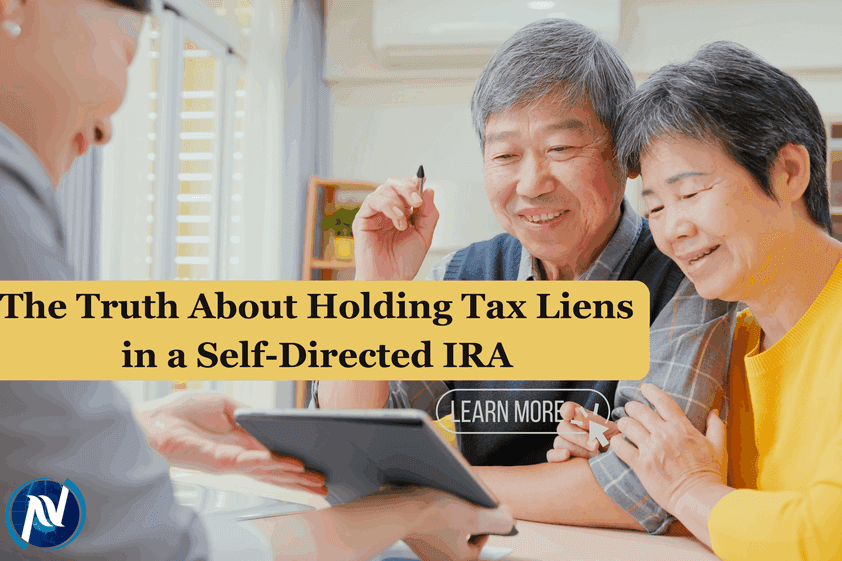The Truth About Holding Tax Liens in a Self-Directed IRA
Maybe it’s not the flashiest way to invest. But for some retirement savers, tax lien certificates are a smart, steady way to grow wealth…especially when you pair them with a Self-Directed IRA. They’re relatively low-cost to enter, backed by real property, and in many cases, they generate strong interest payments. It’s no wonder more investors …

Maybe it’s not the flashiest way to invest. But for some retirement savers, tax lien certificates are a smart, steady way to grow wealth…especially when you pair them with a Self-Directed IRA. They’re relatively low-cost to enter, backed by real property, and in many cases, they generate strong interest payments. It’s no wonder more investors are giving tax liens a second look.
But as with any niche strategy, you need to understand how it works. Especially if you’re planning to use your retirement funds.
What a Tax Lien Actually Is
When a property owner doesn’t pay their property taxes, local governments still need that money to fund roads, schools, and other services. So they issue what’s called a tax lien certificate. It’s basically a legal claim against the property, which is then sold to investors. As the investor, you’re paying the overdue taxes on the owner’s behalf. And in return, you’re entitled to repayment—plus interest—when the owner settles their debt.
That interest rate can vary widely by state, but in some cases it’s surprisingly generous. And if the property owner never pays? You could end up with the chance to take ownership. While that’s not the typical goal for most investors, it can happen.
Tax lien investing tends to attract those investors who want real estate exposure without buying an entire home or commercial building. And in a Self-Directed IRA, it’s one more way to diversify.
How It Works Inside a Self-Directed IRA
The mechanics of the investment don’t change much. You’re still purchasing the lien certificate and waiting for repayment. But with a Self-Directed IRA, you’re doing it with retirement funds. That means the money comes from the IRA—not your personal checking account. And any returns from interest or property acquisition flow back into the IRA, not into your pocket.
There are rules, of course. You can’t buy a tax lien on your own house. You can’t collect repayment checks yourself. All funds have to stay within the IRA, and a qualified custodian has to handle the paperwork. That’s where many first-time investors trip up—not in the investment itself, but in the execution.
It’s also worth noting that every state runs its tax lien sales a little differently. Some use auctions. Others use a rotation system. Some give the property owner just a few months to repay, while others allow years. You’ll want to research the process in any state you’re considering and understand what timelines and interest rates apply.
Why It Appeals to Strategic Investors
The biggest appeal here is security. Tax liens are backed by real estate. That means there’s a built-in layer of protection—something you won’t get with every asset class. Even if the lien goes unpaid, you may still come out ahead by acquiring the property itself. And since many liens are relatively inexpensive to purchase, it’s a way to get started in real estate without spending tens of thousands of dollars.
That said, tax liens aren’t totally passive. They require research, tracking deadlines, and staying on top of the process. But for investors who like being hands-on and want more control over their retirement strategy, this can be a compelling way to put IRA dollars to work.
Want to explore whether tax lien investing could be a fit for your retirement plan? Interested in just digging around a bit more? Give American IRA a call today at 866-7500-IRA. We’ll walk you through how it works and help you decide if it’s the right path forward for your Self-Directed IRA.
Get 15 minutes of free expert advice.
If you're not sure whether a self-directed IRA is right for you, schedule a 15-minute call with our industry veteran team. We'll explain the possibilities, help you evaluate your options, and answer all your questions - no pressure, no obligations.
